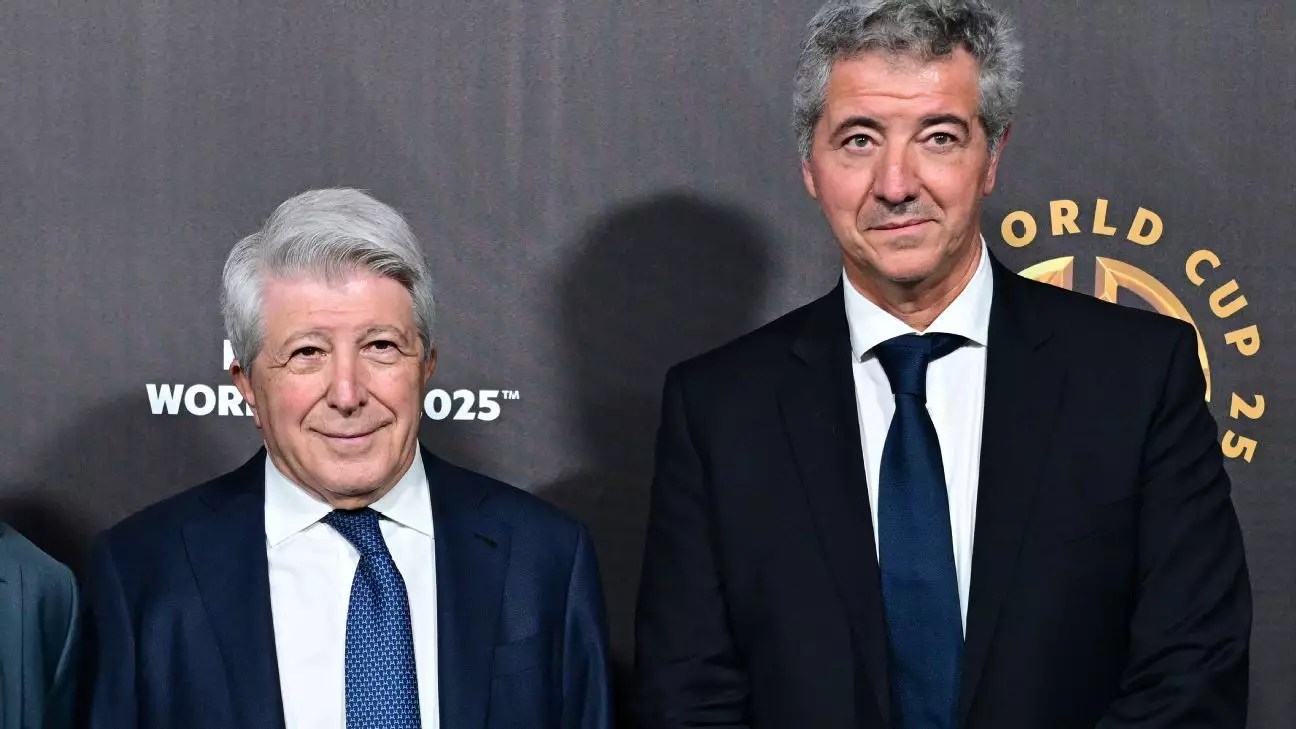The landscape of European football has been rife with speculation, disagreement, and controversy surrounding the Super League project. Recently, Miguel Ángel Gil Marin, the chief executive of Atlético Madrid, expressed his firm disapproval of the latest attempts to revive this divisive concept, indicating that it merely serves the interests of a select few clubs, notably dismissing the inclusivity that football should embody. This article dissects the implications of his critique and explores the future of competitive football in Europe.
Initially, the Super League was pitched as a revolutionary concept—a closed league that promised financial stability and elite competition for its founding members. However, Gil Marin’s recent remarks signal a substantial shift in perception within the football community. Calling the initiative a “project based on a closed league,” he suggests it represents a threat to the cherished values of competitive balance that underpin the sport. The aspiration of a league prioritizing revenues for a handful of clubs stands in stark contrast to UEFA’s commitment to maintaining a diverse and competitive European football pyramid.
The transformation of the Super League into what is now referred to as the “Unify League” raises profound questions about its original intent. While promoters A22 advocate for formal recognition from governing bodies like UEFA and FIFA, Gil Marin contends that the current proposals only serve as a vindication for one major club, hinting at Real Madrid’s ongoing insistence on pursuing this controversial model. This evolution reflects a growing disconnect between the project’s foundational goals and the realities of football’s ecosystem.
The Inside-Out Approach: A Call for Structural Change
Gil Marin believes that real change in football should come from within the existing frameworks rather than through external pressure. He emphasizes the importance of working within the current systems to foster improvements, rather than destabilizing them. This perspective underscores a broader consensus among many clubs and stakeholders who advocate reform that enhances competition while also ensuring financial viability across the board.
Contrasting Marin’s approach is the stance taken by Florentino Pérez, president of Real Madrid. Pérez has repeatedly criticized UEFA’s structural reforms that aim to broaden participation and revenue-sharing among clubs. This conflict demonstrates the growing polarization within European football governance, particularly between the large, wealthy clubs advocating for exclusive rights and the majority that support a more inclusive model.
In addition to his thoughts on the Super League, Gil Marin highlighted a pressing issue that transcends competitive ambitions—the health and well-being of players. His advocacy for limits on the number of games a player can participate in is particularly relevant in an era where athlete burnout is a significant concern. The relentless scheduling of fixtures across club and national team commitments not only jeopardizes individual player health but poses a risk to the overall integrity of the sport.
Such a stance calls for a re-evaluation of how football prioritizes player welfare amidst the ongoing demands for competitive success and revenue generation. It advocates for a future where player protection is placed at the forefront, ensuring their contributions to the sport can be sustained over the long term.
Despite the surrounding controversies, Atlético Madrid has been proactive in its strategy to compete at the highest level. By investing heavily in young talents such as Julián Álvarez and Alexander Sørloth, the club aims to build a robust squad capable of challenging for titles. Gil Marin’s assertion that necessary changes in the squad required significant investment reflects a commitment to both competitiveness and sustainability.
Their position at the top of LaLiga as of late 2025, highlighted by pivotal victories against rivals, is indicative of a club leveraging its resources in a calculated manner rather than succumbing to the ENTICement of a questionable league structure. This reinforces the argument that long-term planning and investments in infrastructure and player development may ultimately yield more fruitful outcomes than pursuing an unstable, exclusive league structure.
As the discussion around the Super League continues to evolve, it is vital for clubs, players, and fans alike to engage in meaningful dialogue about the future of European football. Reflecting on the insights from figures like Gil Marin, it becomes clear that safeguarding the sport’s integrity and inclusivity is paramount. The legacy of football should pivot on the principle of accessibility, competitiveness, and the holistic welfare of its players, ensuring that the beautiful game remains as cherished and dynamic as ever.


Leave a Reply